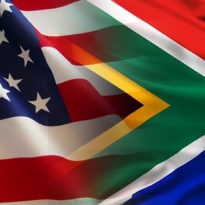 South Africa has yet to legalize online gambling, but that hasn’t prevented some of its more enlightened politicians from pushing for change. Last month, the Gambling Review Commission recommended a policy of regulating online gambling, although in limited fashion. Last week, the National Assembly’s Trade and Industry Oversight Committee advanced this agenda by asking the Department of Trade and Industry (DTI) to propose some kind of legislation that recognizes reality, in that (a) online gambling is happening whether the state likes it or not, (b) prohibition of online gambling is both costly and ineffective, and (c) the state’s intransigence on this issue is depriving it of badly needed tax revenue.
South Africa has yet to legalize online gambling, but that hasn’t prevented some of its more enlightened politicians from pushing for change. Last month, the Gambling Review Commission recommended a policy of regulating online gambling, although in limited fashion. Last week, the National Assembly’s Trade and Industry Oversight Committee advanced this agenda by asking the Department of Trade and Industry (DTI) to propose some kind of legislation that recognizes reality, in that (a) online gambling is happening whether the state likes it or not, (b) prohibition of online gambling is both costly and ineffective, and (c) the state’s intransigence on this issue is depriving it of badly needed tax revenue.
The committee recommended the regulation of specific forms of online gambling, including slot machines, casino games, bingo, sports betting and the Tote. Left off that list are poker or exchange wagering, two peer-to-peer forms of betting that the Financial Intelligence Centre has identified as potential vehicles for money laundering. This won’t sit well with Betfair, who’d hoped to earn some brownie points by pulling out of the country in February to comply with last September’s Supreme Court of Appeal ruling that also compelled Swaziland-based Piggs Peak to cash out its South African clientele.
The National Gambling Board envisions a system that would issue a “manageable” number of online gambling licenses. (University of Johannesburg professor Basie von Solms, who has been consulted by the government on this issue, recommended “four or five” licenses be issued “under very strict compliance methods.”) The duration of these licenses has been proposed at eight years.
Despite occasional signs of forward progress, most internal observers believe South Africa is still two to three years away from any effective national policy re online gambling. The interminably slow path to regulating online gambling even mirrors the fight currently being waged in the United States. As in America, the federal/state schism is playing out across South Africa’s nine provinces, each of which zealously guards its own particular spin on gambling issues (land-based gambling taxes being the second most important source of provincial income).
Speaking to a parliamentary committee last month, DTI deputy director Zodwa Ntuli sounded very much like American Gaming Association head Frank Fahrenkopf in observing: “There isn’t any alignment … If we have laws in different provinces which are completely diverse, it also has the potential to increase the cost of compliance for operators … [It] actually results in uncertainty.” Seems it really is a small (and predictable) world after all.